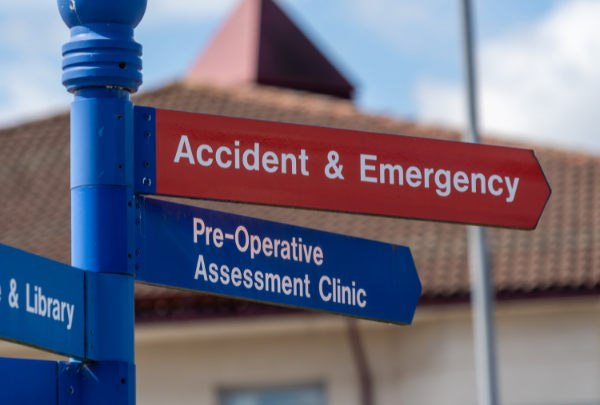The Stroke Association has warned individuals must not delay in seeking medical attention for stroke due to fears around rising COVID-19 rates.
Following a significant drop in stroke admissions during the first pandemic in 2020, concerns are now rising that a similar situation could occur throughout the newest phase of Coronavirus, the Omicron variant. Almost 32% of individuals who survived a stroke between March and June 2020 admitted to delaying seeking medical attention due to COVID-19.
Recoveries at Risk report
The Stroke Association’s Recoveries at Risk report found the drop in admissions last year was down to patient worry over catching the virus or becoming a burden on the NHS. However, entering 2022, almost two years after the pandemic hit the UK, new data shows more people are living with unmanaged hypertension and other major stroke risk factors.
This could be down to fewer regular in-person appointments for cardiovascular conditions such as high blood pressure.
Hypertension is the most significant risk factor for stroke, with 55% of stroke cases caused due to it. The UK currently has 1.3 million stroke survivors and over 100,000 strokes per year. Stroke has been noted as the UK’s fourth-biggest killer and leading care of disabilities in adults.
Alarm bells ring for stroke charity
Juliet Bouverie, chief executive of The Stroke Association, said:
“When COVID cases rise as quickly as they are doing now, that sets off alarm bells at our charity and everyone involved in the treatment of stroke.
More Omicron cases are likely to mean more preventable deaths and disability due to stroke, as people delay seeking emergency medical attention.”
Over the last two years, many people have become worried about attending hospital unless absolutely necessary. A stroke is a life-threatening condition and so should be treated as a necessary case. Fear of COVID-19 should not stop individuals from calling 999 if they believe they are suffering from a stroke.
Some individuals haven’t received an in-person appointment at their GP or local hospital in almost two years, meaning their blood pressure levels haven’t been monitored. As a result, even more people could be at risk of living with undetected high blood pressure levels.
Choose a Medical Expert specialising in Stroke Rehabilitation
NRC Medical Experts recognise more than ever the need to educate, understand and support those with neurological rehabilitation. Through NRC Clinical Practice, we can bring leadership and continuity to the rehabilitation journey to improve people’s recovery outcomes.
Whether you need advice, case management, or instruct a medical expert witness, we can assist in aiding you, your client, and your family in a stress-free way.
To inquire about appointing a medical expert witness for your case or discuss selecting a Consultant in Rehabilitation Medicine, request a callback or contact us directly.

